Memphis Bird Control
Welcome to Bird Removal of Memphis! We specialize in the humane and effective resolution of human/bird conflicts in the Memphis metro region, and throughout Tennessee. Whether you have a single bird in a building, or need to prevent pigeon roosting (and bird droppings) on a large architectural project, we can solve your Memphis bird problem effectively and professionally. We install exclusion materials to keep birds away, and even provide pigeon trapping as a means of Memphis bird removal. We are not a pest control company, but rather wildlife, bat, and bird specialists only. Click on our Memphis Prices page to find out more about our prices for bird control work. You can also read the topics addressed on this website to learn more about how to resolve your specific bird conflict. We look forward to hearing from you.
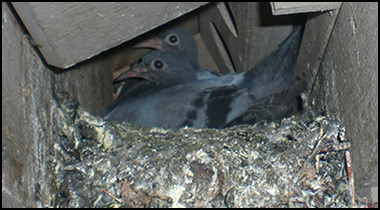
Memphis Bird Removal & Structural Repairs
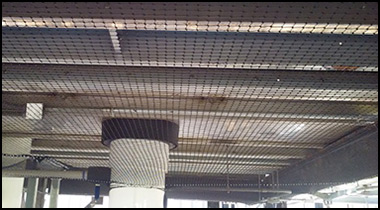
Exclusion Netting & Spike Installation

Tennessee Bird Trapping & More
Call 24/7 to discuss your Memphis bird problem.
Same-day or next-day appointments: 901-457-5919
Thorough inspection of your property.
Written estimates for bird project.
Fully Tennessee licensed and insured.
Structural bird exlusion netting.
Anti-roosting spikes and shock track.
Aurel dispersion and bird harrassment.
Bird dropping cleanup and sanitation services.
Bird damage repair and building exclusion.
Our Service Range - 901-457-5919
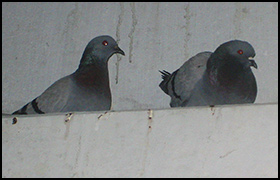
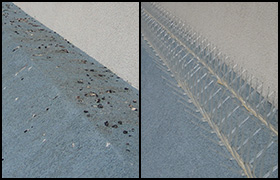
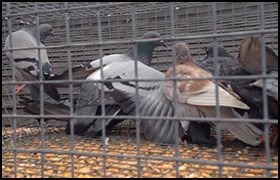
For bird control and general wildlife removal, visit the Memphis Pest Animal website.
Canada Goose Repellents - Types, and do they work?
There are several types of Canada Geese repellent available today and they work in diverse ways. While some repellents such as Methyl anthranilate can produce offensive smell on plants and make them very irritating to geese, some other repellents may simply cause irritation in the mouth or gut of the geese , thus the animals wouldn’t return to the same spot. There is no doubt about the fact that repellents are effective, however, they can cause serious injuries or even kill the animals and that could be against the laws. Secondly, other pets that consume plants may also eat the repellent treated plants and get killed too.
There are two types of Canada Goose repellents, these are; Natural and chemical repellents. Natural repellents contain some of the ingredients found in homes, including Garlic, and Baking powder. Chemical repellents commonly used to repel Canada Goose include; methyl anthranilate, Methyl-anthraquinone, and Methyl-Aninbenzoate. Chemical repellents are mostly applied on crops and turfs because they are safe on the plants but offensive to the geese. Methyl anthranilate seems to be the most popular chemical repellent because it has a sweet-smelling characteristic and can be naturally extracted from grapes and certain citrus fruits.
Methyl anthranilate is also produced synthetically and has remained a component of many perfumes and soaps, it is also present in candies and also used as a flavourant in the making of ice creams and chewing gums. For this reason the repellent is quite harmless to humans but irritates geese extremely. Repellents prevent geese from eating treated vegetation. The control on geese can last as long as the repellent remain on the vegetation, however, the geese may return once the repellent power wear out and this could render such applications not effective at the long run. To make chemical repellents more effective, other conventional geese-control measures such as mechanical traps must be combined with it.
Chemical repellents may be washed off by rain, or naturally degraded; therefore you will need to re-apply. You need to ensure that new vegetation growth will require new treatment and sometimes Canada geese may learn to avoid eating the treated regions. When purchasing repellents, you need to consider several factors and most important of these is the concentration of the active ingredient. Secondly , you may want to consider whether the repellent has an additional ingredient or adjuvants that will help the application of the chemical last longer or cover wider areas. If the repellent does not come with an adjuvant , then you may have to purchase that separately.
Natural repellents for Canada Geese may not be as effective as synthetic repellents; however, most natural repellents are bio-degradable and may not injure or kill the animal.
both in the mating and nesting periods and they protect the nesting areas most times.

